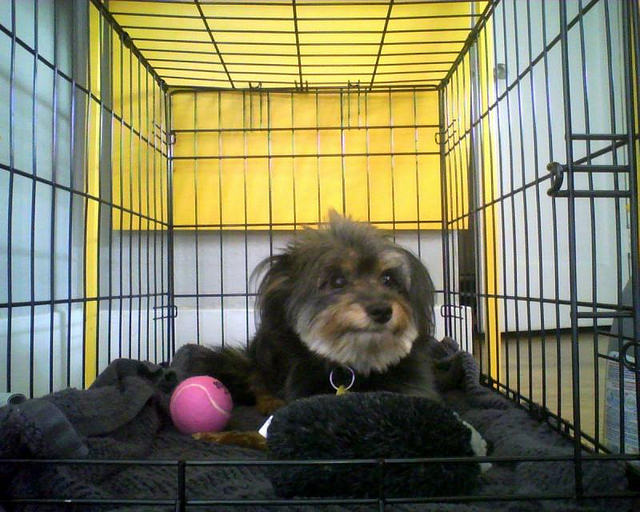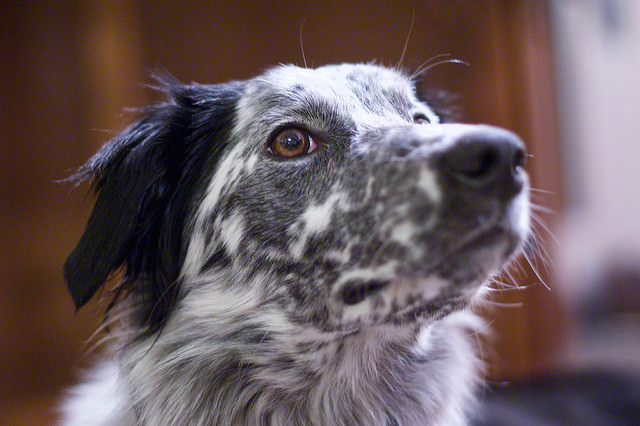When it comes to anxiety and dogs, we often don’t know the direct cause. Just like people, some dogs suffer from anxiety disorders. Unlike people, dogs can’t really go to talk therapy or try many different medications. Since we often don’t know what causes the anxiety, however irrational it may seem, we sometimes have to get creative when it comes to helping our dogs find relief. Whether your dog is afraid of fireworks, has separation anxiety, or is just a general Nervous Nellie, there are some ways you can try to combat your pup’s inner demons.
#1 – Calming Treats & Chews
There are many different calming treats and chews on the market and they all use natural ingredients to help promote overall comfort and well-being in our dogs. Some are given as little treats for your pup to enjoy during a time of stress, such as a thunderstorm or during fireworks, and others are more long-lasting chews to help keep your dog’s mind occupied while you’re away or during scary events as well. Some treats and chews are filled with essential oils to combine aromatherapy and a dog’s natural stress-relieving chewing behavior.
Learn More & Shop Calming Chews

#2 – Crates
Crates are often controversial but are actually one of the best things you can offer your dog if done the right way. If your dog is taught to love and be comfortable in their crates, you might even find they go inside on their own without you asking – especially during times of stress. Crates are like dens for our dogs inside our own homes. They offer a place for your dog to feel safe and secure and when locked, they also ensure that our dogs don’t injure themselves trying to escape the house. Dogs with separation anxiety often chew and ingest very dangerous items, not to mention cause serious damage to homes, and crating is a safe way to keep them confined to limit both your home renovation and veterinary bills.
#3 – Aromatherapy
Aromatherapy is a great way to decrease anxiety in many dogs. There are several different options when it comes to this method. There are scents that plug into your walls that emit calming pheromones and aromas, and there are sprays and balms you can use around the house and on your dog. Find aromas and essential oils that are specifically tailored to dogs, because many human ones are too strong and sometimes toxic to our pets. But the right amount used the correct way can make all the difference in the anxious dog.

#4 – Physical Contact
Dogs are social animals. Just like people, they often feel better by receiving physical contact from those they love. Comforting your dog during times of stress will often make them feel better, especially if they are frightened during a veterinary visit or a thunderstorm. Sometimes just being near our dogs is all they need to feel safe and secure, so it’s important not to leave your dog alone during an event you know will make them anxious.
#5 – Exercise
As many people suffering from anxiety disorders will tell you, exercise often helps alleviate anxiety and stress. Although it’s not a cure, exercise does improve the general mood of both dogs and people and offers a way to focus our minds and bodies on something other than our anxieties. Running and playing are great ways to reduce stress and often help improve the lives of very anxious dogs overall. Exercise is essential for a healthy body and a healthy mind, and an anxious dog needs it more than you may realize.
Try Our New Advanced All-Natural Calming Chews for Dogs, and Each Purchase Will Provide 7 Health Meals for a Shelter Dog!
These statements have not been evaluated by the Food and Drug Administration. This product is not intended to diagnose, treat, cure, or prevent any disease. The information on this website is not intended to replace a one-on-one relationship with a qualified health care professional.

